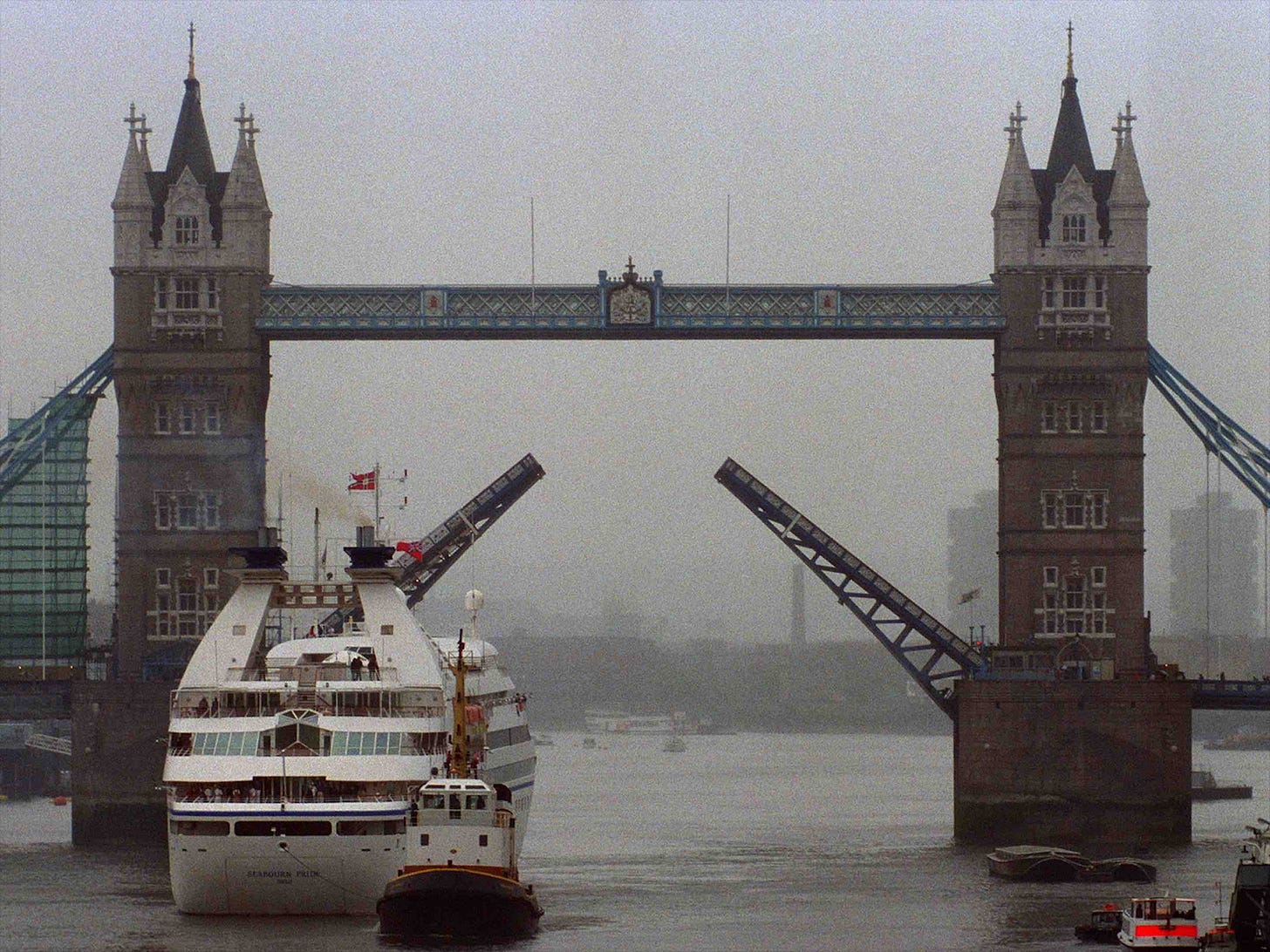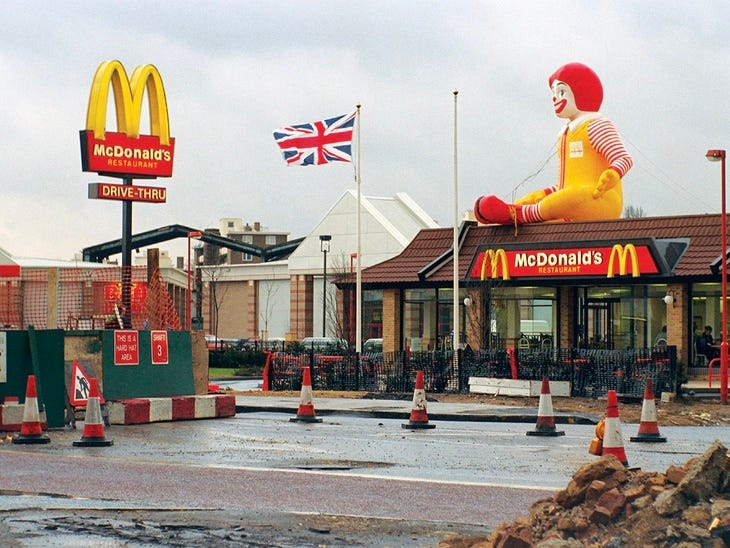London
...that great cesspool into which all the loungers and idlers of the Empire are irresistibly drained.
Directed by Patrick Keiller
United Kingdom, 1994
Dirty Old Blighty: undereducated, economically backward, bizarre – a catalogue of modern miseries, with its fake traditions, its Irish war, its militarism and secrecy, its silly old judges, its hatred of intellectuals, its ill health and bad food, its sexual repression, its hypocrisy and racism, and its indolence. It's so exotic, so home-made…
What an appealing introduction, or perhaps an appalling invitation, to the Big Smoke, the Great Wen… London.
London is part film, part prose-poem, an idiosyncratic work by the architect turned filmmaker, Patrick Keiller. A meditation on the city over the course of one year, 1992, London’s establishing shot is deceptive. That essential icon of the city skyline, Tower Bridge, opens for the passage of a cruise liner pulled by a tugboat. It is one of just a few tourist landmarks shown in the film. As the opening monologue tells us, this is no paean to the world’s greatest city. This is a London of the early nineties: grey, dismal, often bleak, the sound of the city too often punctuated by the explosions of the IRA’s bombing campaign.
No, this isn’t a travelogue, it is a project – an art project, a quest for the source of English Romanticism. That should be obvious to the viewer as the camera fixes its gaze on a Union Jack flapping in the wind next to an inflatable Ronald McDonald sitting atop a branch of the eponymous burger chain. An eccentric work then, or a Situationist project, an attempt to transform the mundane through use of the imagination. The film is peppered with references to the French poets Baudelaire, Verlaine and Rimbaud. Their impressions all compare London unfavourably to the City of Light, Paris, and yet something must have drawn them here.
There is a story here somewhere… the unnamed, unseen narrator, has returned to London after a seven year absence, and tells us of his friend, a man named Robinson with whom he has an ‘uneasy sexual relationship’. These two characters set off on a contemplative journey, three walks that will comprise an exercise in ‘psychic landscaping, drifting and free association’. We listen to a critique of the city, sometimes archly sardonic, sometimes damning, delivered with the mordant timbre of Paul Scofield – Sir Thomas More in A Man for All Seasons, and perhaps fittingly here, the narrator of The State Funeral of Winston Churchill.
Robinson’s appraisal is also deeply political. He is hoping for a change of government after the long decade of Margaret Thatcher’s shock therapy:
London is a city under siege from a sub-urban government, which uses homelessness, pollution, crime, and the most expensive and run-down public transport system of any metropolitan city in Europe, as weapons against Londoners' lingering desire for the freedoms of city life.
The film then cuts to news footage of the General Election, with John and Norma Major receiving congratulations at 10 Downing Street as the Tories are returned to power.
But for all the angry subtext of Keiller’s film, it is the imagery that makes this such a beguiling and captivating work. Fragments of a time past, this is a London before three of the four ReidsonFilm were born. Before Cool Britannia, before the 2012 Olympics… no London Eye and no Shard. Red Routemaster buses still plough the furrow of 2B and 88. Keiller’s static camera makes no comment as its eye falls on the bombed, blown-out, Baltic Exchange, or shoppers milling about in Brent Cross Shopping Centre.
The pomp and circumstance of the Trooping of the Colour on Horse Guards Parade cuts away to the shocking pink of Elephant and Castle. That now extinct bird, Concorde almost clips the roofs of the Hounslow terraces as it takes off from Heathrow Airport, and Battersea Power Station stands desolate and isolated, not yet clasped in the frozen embrace of luxury apartments. A mournful Beethoven string quartet plays in the background.
This is ostensibly a portrait of a city in decline, the script reads as a vituperative dispatch. Yet London has been written off many times before, ever since the city’s founders, the Romans, abandoned it in around 410AD. For those of us in the know, London is really in many ways a love letter.
Declaration of interest: ReidsonFilm were all born in London, and consider it home.
Reids’ Results (out of 100)
C - 80
T - 76
N - 73
S - 79
Thank you for reading Reids on Film. If you enjoyed our review please share with a friend and do leave a comment.
Coming next… Grand Theft Hamlet(2024)









60/100 for me. I’ve seen it three or four times and I just can’t gel with it. Like the three London films by St Etienne, it’s pleasant to behold, but the details quickly slip from the memory like dreams.